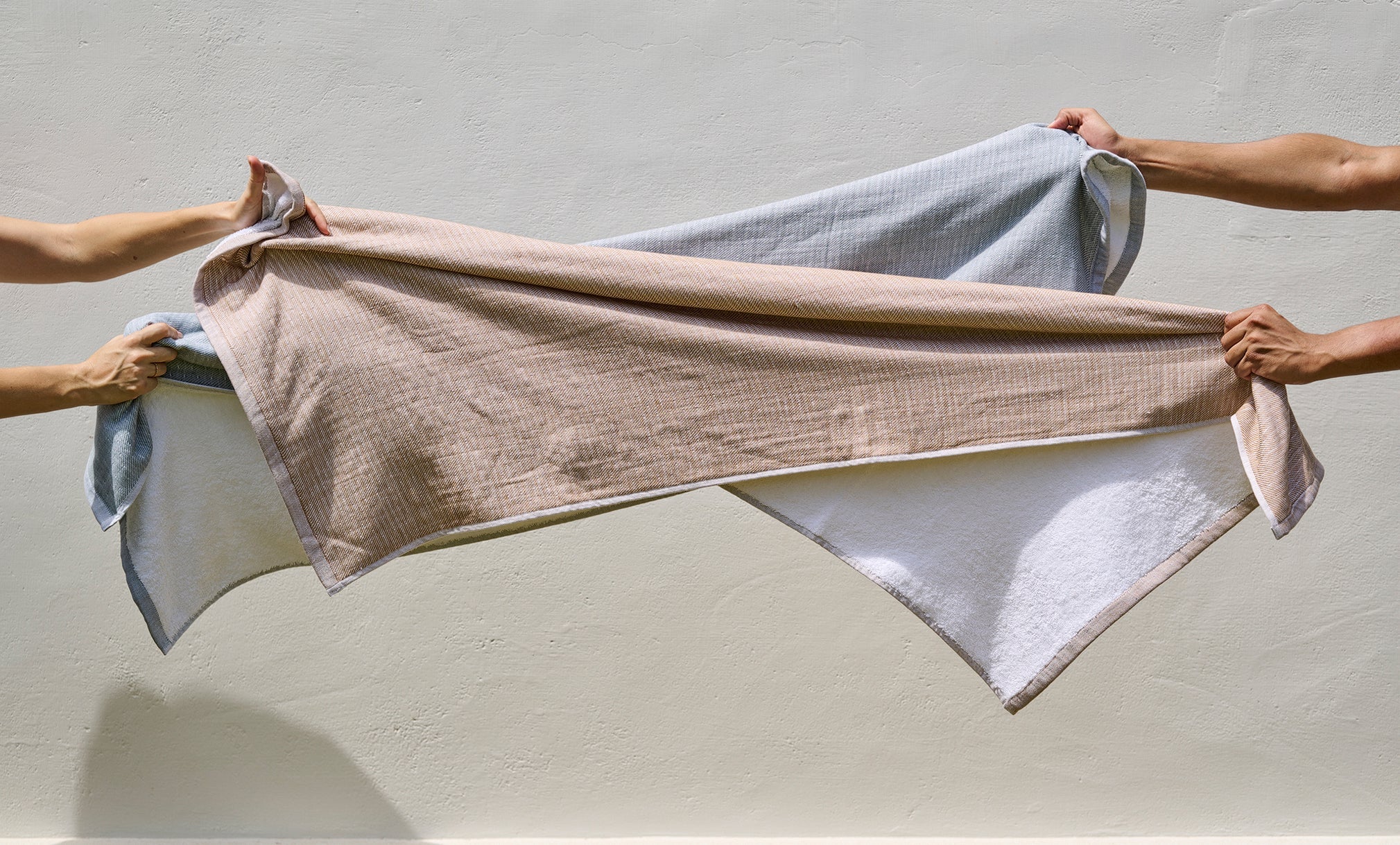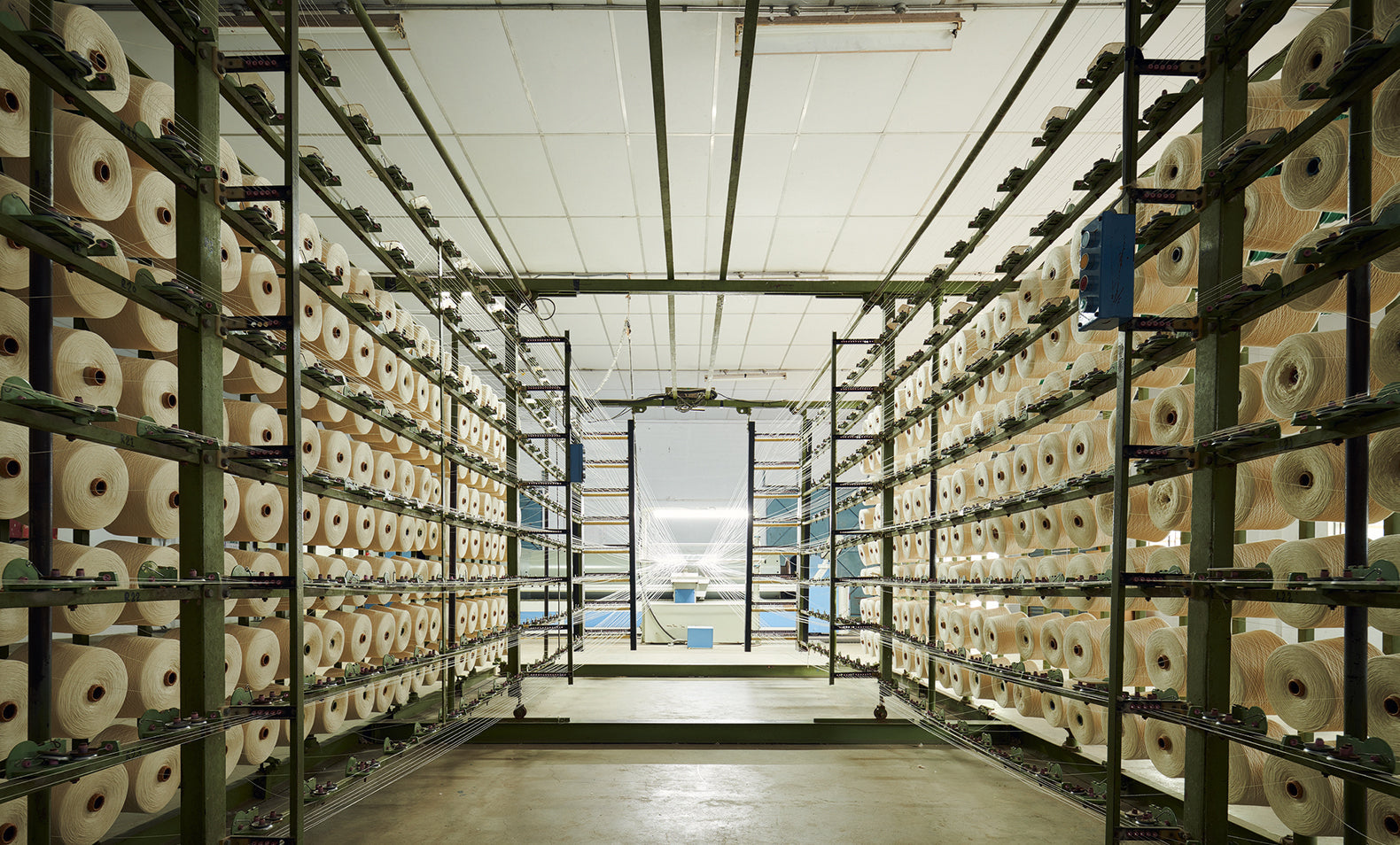
Linen in Languages: Idioms, Proverbs, and Sayings from Around the World
Before it became something we folded into drawers or spread across beds, fabric was language. It showed up in how people described life’s messiness, precision, and comfort. Across cultures and centuries, textiles have been metaphors, stand-ins for emotions, values, and everyday truths.
Here are a few ways cloth, linen, and thread have shaped how we speak, and how much we reveal when we do.
“Don’t air your dirty linen in public.”
(English)
 This saying is a reminder to keep private matters private. Linen here isn’t just fabric. It stands for what is personal, what belongs within the home. Once stained or out of place, it becomes a sign of something unsettled. To air it in public is to cross a boundary, to reveal what was meant to stay unseen.
This saying is a reminder to keep private matters private. Linen here isn’t just fabric. It stands for what is personal, what belongs within the home. Once stained or out of place, it becomes a sign of something unsettled. To air it in public is to cross a boundary, to reveal what was meant to stay unseen.
“Hanging by a thread.”
(Multiple languages)
 Found across cultures, this phrase uses the fragility of thread to express uncertainty or impending collapse. One wrong move and everything might unravel. Whether in politics, relationships, or personal health, the metaphor works because fabric-making is precise. When one thread weakens, the whole structure is at risk.
Found across cultures, this phrase uses the fragility of thread to express uncertainty or impending collapse. One wrong move and everything might unravel. Whether in politics, relationships, or personal health, the metaphor works because fabric-making is precise. When one thread weakens, the whole structure is at risk.
“To have a loose thread.”
(Spanish: Tener un hilo suelto)
This phrase is often used when a task feels incomplete or a detail has been missed. In fashion and daily life, loose threads tend to draw the eye. They suggest that some part of the whole still needs care before it can be considered finished.
“To weave lies.”
(German: Lügen spinnen)
 In German and other languages, lying is spun, like thread from a spindle. The metaphor suggests intent, construction, and design. Falsehoods are not thrown together; they’re spun and shaped, often as carefully as cloth.
In German and other languages, lying is spun, like thread from a spindle. The metaphor suggests intent, construction, and design. Falsehoods are not thrown together; they’re spun and shaped, often as carefully as cloth.
“Dyed in the wool.”
(English)
Originally from textile-making, this phrase means someone’s beliefs or character are deeply ingrained. Once wool is dyed, the colour holds fast and doesn’t wash out. The metaphor speaks to permanence and depth, something held in the fibre of one’s being.
“Cut from the same cloth.”
(English)

Used to show likeness between siblings, friends, and even rivals. The phrase assumes fabric as foundation: if two people come from the same piece, there’s an inescapable connection in how they were shaped.
Why it matters
These sayings are more than just linguistic curiosities. They show how deeply fabric is woven into our everyday lives. Long before mass production and online shopping, linen was present at every stage of life. It was there at birth, during mourning, in moments of celebration, and in times of rest. Over time, it became part of how we describe the world and our place in it.
At Oodaii, fabric is never just functional. It carries meaning. It holds memory. It settles quietly into the rhythm of a home, becoming part of the way we live



Leave a comment
This site is protected by hCaptcha and the hCaptcha Privacy Policy and Terms of Service apply.